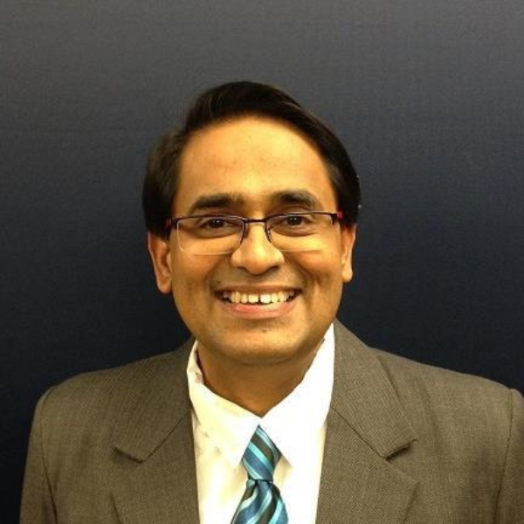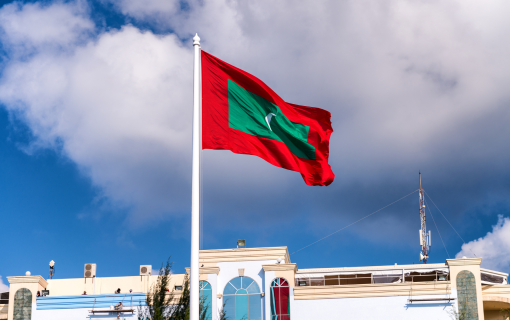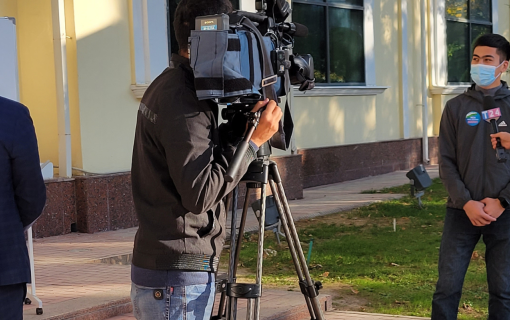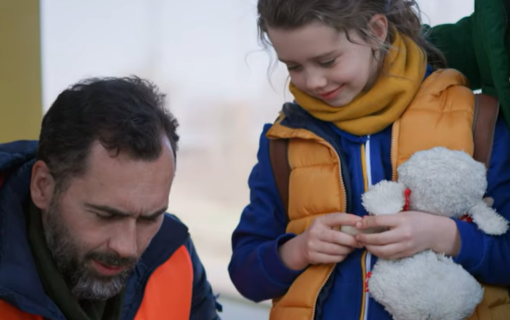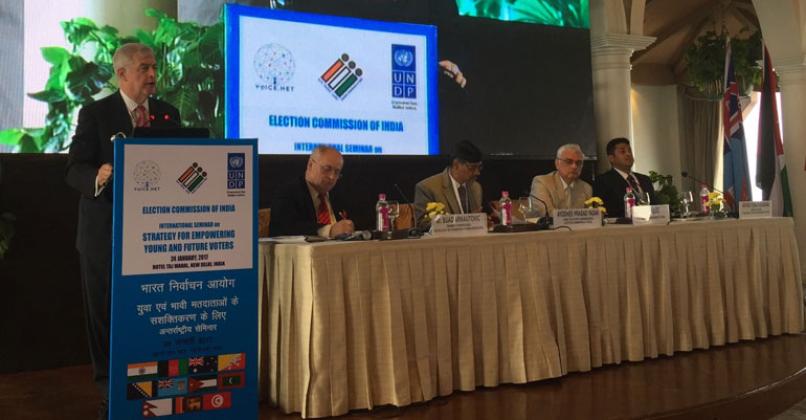
IFES CEO Presents Youth Engagement Strategies at Indian Election Commission Conference
On January 24, the Election Commission of India hosted an international conference in New Delhi focused on sharing successful strategies to empower young and future voters throughout the country. This topic is particularly relevant as India was recently recognized as having the largest youth population on the planet with some 356 million individuals under 25. The Election Commission faces myriad challenges – from resources to capacity for outreach and voter education – in ensuring that such a large volume of new voters has the opportunity to participate in the electoral process and have their voices represented at all levels of government. The international seminar brought together representatives from 11 countries and several international organizations.
 During the conference, International Foundation for Electoral Systems (IFES) President and CEO William R. Sweeney, Jr. presented IFES’ approach to engaging young people, as well as some of the organization’s programmatic methods. Sweeney noted that “youth” is typically a period of transition during which young people incrementally gain rights and privileges associated with citizenship, such as the right to vote, and other legal status. He referenced international legal mechanisms that provide a framework for youth participation, specifically the United Nations Convention of the Rights of the Child (UNCRC) that sets forth civil, political, and social rights of minors, as well as the UN Security Council Resolution 2250 (UNSCR 2250) on youth, peace, and security that acknowledges the role of young people in building and maintaining peace and security in their societies.
During the conference, International Foundation for Electoral Systems (IFES) President and CEO William R. Sweeney, Jr. presented IFES’ approach to engaging young people, as well as some of the organization’s programmatic methods. Sweeney noted that “youth” is typically a period of transition during which young people incrementally gain rights and privileges associated with citizenship, such as the right to vote, and other legal status. He referenced international legal mechanisms that provide a framework for youth participation, specifically the United Nations Convention of the Rights of the Child (UNCRC) that sets forth civil, political, and social rights of minors, as well as the UN Security Council Resolution 2250 (UNSCR 2250) on youth, peace, and security that acknowledges the role of young people in building and maintaining peace and security in their societies.
 In light of this international framework, IFES approach to empowering young people centers on fostering an understanding of citizens’ rights and responsibilities in pluralistic societies. Specific IFES methods include formal civic education inside of the classroom at both secondary and tertiary levels, non-formal activities outside of the school setting such as debate clubs, summer democracy camps, and peer-to-peer mentorship activities, and finally programs that give young people the change to apply their knowledge to real-world settings to address issues of importance to them. Sweeney concluded by stressing that more opportunities youth have to exercise their agency, the more likely they are to participate in public and political life both now, and in the future.
In light of this international framework, IFES approach to empowering young people centers on fostering an understanding of citizens’ rights and responsibilities in pluralistic societies. Specific IFES methods include formal civic education inside of the classroom at both secondary and tertiary levels, non-formal activities outside of the school setting such as debate clubs, summer democracy camps, and peer-to-peer mentorship activities, and finally programs that give young people the change to apply their knowledge to real-world settings to address issues of importance to them. Sweeney concluded by stressing that more opportunities youth have to exercise their agency, the more likely they are to participate in public and political life both now, and in the future.
Also speaking at this event, the Chairman of the Election Commission of Sri Lanka, spoke of their collaboration with IFES Sri Lanka on “Kites for Rights,” a successful youth outreach program.




